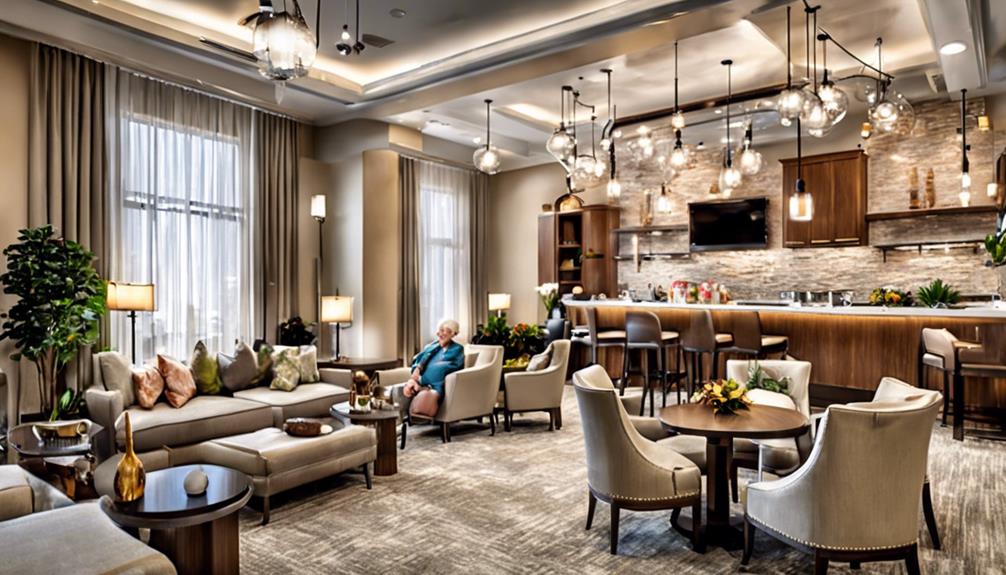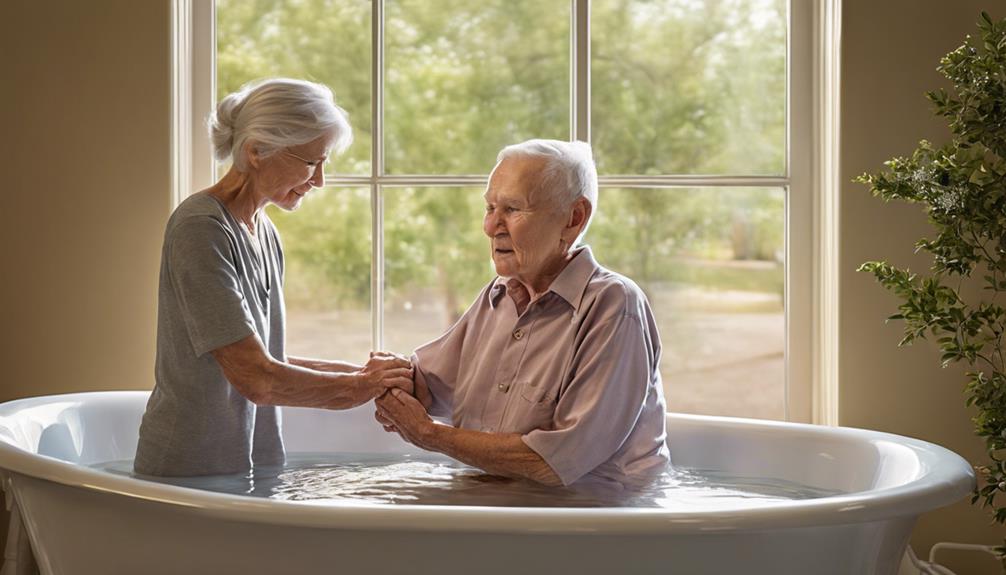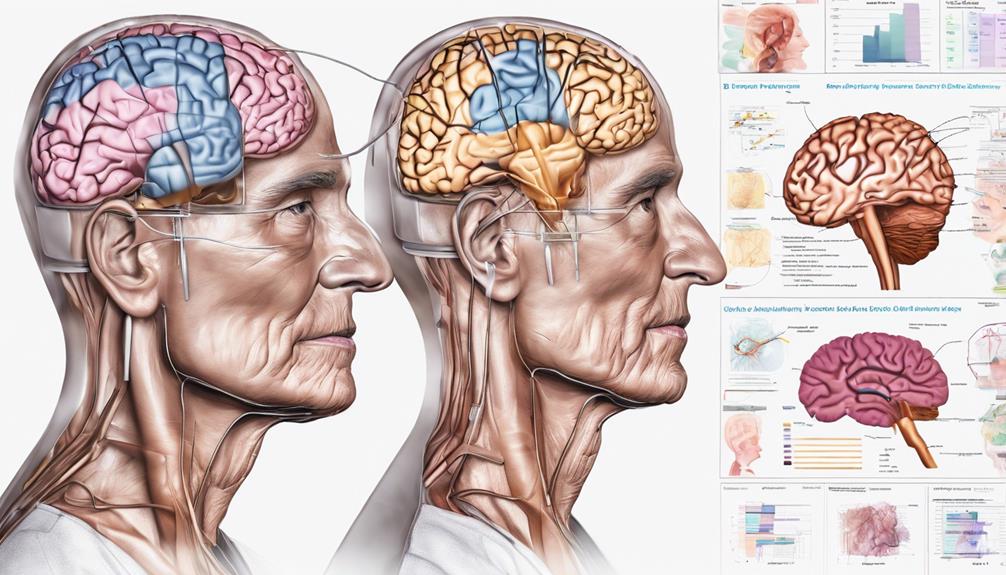Senior assisted living offers elderly individuals assistance with their daily activities, personalized care, and social opportunities. These establishments provide a range of non-medical support, private living accommodations, and opportunities for social interaction. Services may include help with daily tasks, management of medications, and recreational activities. Residents can enjoy healthy dining options, community events, and care plans tailored to their needs.
In order to be eligible for senior assisted living, individuals generally require assistance with daily tasks while still maintaining some level of independence. Costs can vary, with the national median rate being $4,000 per month. Selecting the right facility involves considering the levels of care provided, amenities offered, and qualifications of the staff. Delving deeper into the topic will uncover more insights on senior assisted living care.
Key Takeaways
- Assisted living offers non-medical assistance and private accommodations.
- Residents benefit from social engagement opportunities and personalized care.
- Services include assistance with daily living activities and medication management.
- Recreational activities and dining options support well-being and socialization.
- Financial aspects include monthly rates, additional fees, and payment options.
Types of Senior Assisted Living Facilities
When we explore the various types of senior assisted living facilities, we encounter a range of options tailored to meet diverse needs and preferences. Assisted living facilities are designed to provide older adults with the support they need to carry out daily activities while promoting independence and overall well-being. These facilities offer non-medical assistance such as housekeeping, transportation, and social engagement opportunities. Residents can enjoy private accommodations and access services like home maintenance and meals for an additional fee. In addition to the essential services provided, many facilities also boast exciting senior center activities that foster community engagement and mental stimulation. These activities may range from group exercise classes and art workshops to game nights and educational seminars, ensuring that residents stay both physically active and socially connected. Such vibrant programming enhances the quality of life for seniors while offering ample opportunities for personal growth and friendship.
Assisted living communities focus on creating a supportive environment where older adults can thrive and maintain their autonomy. By offering help with daily tasks and organizing activities, these facilities aim to enhance the quality of life for their residents. Choosing the right assisted living facility involves considering factors such as the level of care needed, amenities offered, and the overall atmosphere of the community. Opting for a facility that aligns with the preferences and requirements of the individual seeking care is crucial.
Benefits of Senior Assisted Living

In senior assisted living, residents benefit from a vibrant community that combats isolation and promotes social engagement.
Assisted living facilities offer personalized support and care tailored to each individual's needs, allowing seniors to maintain their independence while receiving the necessary assistance.
Engaging in a variety of activities, classes, and clubs enhances the quality of life for residents, providing opportunities for socialization and meaningful connections with others.
The emphasis on social engagement in assisted living communities is crucial for overall well-being and happiness among seniors. By participating in social opportunities, residents can combat feelings of loneliness and enjoy a sense of community and belonging.
These interactions not only foster relationships but also contribute to a fulfilling and enriching lifestyle. Assisted living facilities prioritize the importance of socialization to create a supportive environment where seniors can thrive and lead fulfilling lives.
Services Offered in Assisted Living
Assisted living facilities offer a wide range of services to meet residents' needs. These include essential care services, dining options tailored to individual preferences, and various recreational activities to promote social engagement and well-being.
Understanding the services available in assisted living can help individuals make informed decisions about their care options.
Care Services Provided
Residents of senior assisted living facilities benefit from a wide range of care services designed to enhance their well-being and quality of life. These services include assistance with daily living activities, medication management, and social activities to promote social engagement and mental well-being.
Additionally, residents have access to recreational programs that cater to their interests and help maintain a sense of fulfillment. For those needing specialized care, assisted living facilities offer rehabilitation services, palliative care, and end-of-life support, ensuring comfort and dignity during challenging times.
The staff, which includes registered nurses, certified nursing assistants, and other professionals, collaborates to address residents' medical, emotional, and social needs thoroughly. Overall, these care services aim to promote residents' overall health and independence while providing a supportive and nurturing environment.
Dining and Meal Options
With a focus on providing nutritious and personalized dining experiences, our assisted living facility ensures residents enjoy delicious meals tailored to their dietary needs and preferences.
In our dining areas, socialization and community engagement are promoted, creating a warm and inviting atmosphere during meal times. Residents can savor chef-prepared meals in a restaurant-style setting, enhancing their dining experience.
Our meal services emphasize balanced options to support the health and well-being of residents, ensuring they receive the necessary nutrients for a healthy lifestyle. By catering to various dietary needs and restrictions, we aim to make dining a delightful and inclusive experience for all residents.
Recreational Activities Available
Promoting an active and engaging lifestyle, our assisted living facility offers a diverse range of recreational activities to enhance residents' well-being and foster a sense of community. Residents can participate in social events, fitness classes, arts and crafts, and educational programs to stay active and connected.
Outdoor excursions, movie nights, live entertainment, and volunteer opportunities are also available to engage residents and provide entertainment. Additionally, residents can enjoy gardening, book clubs, game nights, and cooking classes to promote socialization and mental stimulation.
Recreational therapy programs are tailored to enhance physical, emotional, and cognitive well-being. Group outings to local attractions, shopping trips, and community events are organized to keep residents active and engaged in the community.
Qualifications for Assisted Living

To be eligible for assisted living, individuals must need assistance with daily activities but be capable of transferring independently. An admission checklist outlines the requirements, including health evaluations to determine the level of care needed.
Understanding the assessment process is essential for families considering assisted living for their loved ones.
Eligibility Criteria Overview
When considering eligibility for assisted living, individuals must demonstrate a need for assistance with activities of daily living while maintaining the ability to transfer independently. This means needing help with tasks like bathing, dressing, and medication management, but still being able to move around without constant aid.
Before moving into an assisted living facility, a health care provider evaluation is often required to assess the level of assistance needed. Individuals should be aware that they shouldn't require skilled nursing care, such as advanced Alzheimer's treatment or feeding tubes, to qualify for assisted living.
Typically, residents in assisted living facilities are aged 75 and older, with many needing assistance with multiple ADLs and some having Alzheimer's or dementia.
Admission Requirements Checklist
Upon reviewing the eligibility criteria overview for assisted living, it is important to understand the specific qualifications outlined in the Admission Requirements Checklist. To provide clarity, a table summarizing the key requirements has been provided below:
| Admission Requirements | Details |
|---|---|
| Living Independently | Able to live independently but need help with ADLs. |
| Health Evaluation | Health care provider evaluation usually required. |
| Skilled Nursing Care | Should not require skilled nursing care. |
| Alzheimer's/Dementia | 34% of residents have Alzheimer's or dementia. |
| Advanced Medical Care | Should not need advanced medical care. |
These criteria ensure that assisted living residents receive appropriate care tailored to their needs and maintain a fulfilling lifestyle.
Assessment Process Details
As we assess the qualifications for assisted living, it's essential to consider the individual's need for assistance with multiple activities of daily living while maintaining the ability to transfer independently. Assisted living residents typically require help with three or more ADLs but should still be able to move without constant aid.
Before admission, a health care provider evaluation is conducted to determine the necessary level of care. While assisted living offers specialized care for cognitive impairments like Alzheimer's or dementia, residents shouldn't need skilled nursing care such as advanced Alzheimer's treatment.
This assessment process guarantees that individuals receive the appropriate support and services tailored to their needs, promoting a safe and comfortable living environment for seniors.
Cost of Senior Assisted Living

Understanding the financial aspects of senior assisted living is important for families considering this option for their loved ones. The national median rate for assisted living stands at $4,000 monthly, with variations based on accommodations.
In addition to the average cost, additional fees may apply for medical and personal care services. Payment options for senior assisted living include personal savings, long-term care insurance, and Medicaid benefits.
Families should also be aware of community fees and initial rent requirements, which can contribute to the overall cost. Planning ahead and grasping these financial considerations to guarantee the best care for your loved ones.
Choosing the Right Assisted Living Facility

When selecting an assisted living facility, prioritize evaluating the proximity of essential services available in the location. Take into account the services and amenities offered, such as dining options and medical care, to make sure they meet the needs of the residents. Inquire about the qualifications, training, and experience of the staff and caregivers at the facility to guarantee excellent care. Understand the pricing structure and ensure financial transparency regarding what's included in the cost. Additionally, take into account the visiting policies that allow meaningful connections with family and friends at the assisted living facility.
| Factors to Consider | Description |
|---|---|
| Location Proximity | Ensure essential services are nearby for quick access in case of emergencies. |
| Services and Amenities | Assess dining options, medical care availability, and other amenities provided to residents. |
| Staff Qualifications | Inquire about the qualifications, training, and experience of the staff and caregivers. |
| Pricing Structure | Understand the pricing model, what it includes, and ensure transparency in financial aspects. |
| Visiting Policies | Take into account the visiting policies that allow residents to maintain connections with loved ones. |
Frequently Asked Questions
What Are the Three Principles of Assisted Living?
We prioritize independence, dignity, and choice for residents. Personalized care, social engagement, and quality of life are key. Active participation in decision-making and autonomy maintenance are encouraged. Our aim is to create a supportive, happy environment.
How Is Most Assisted Living Care Usually Paid For?
Most assisted living care is typically funded through personal savings, long-term care insurance, or assistance programs like Veterans benefits or Medicaid. Additional costs may include specialized services and initial fees upon moving in.
At What Age Do Most Seniors Go Into Assisted Living?
Most seniors usually move into assisted living between the ages of 75-84. The average age of residents is around 80 years old. A significant percentage shift in their mid-70s to mid-80s. It's a common choice for care and support.
What Are the Pros and Cons in Living in an Assisted Living?
Living in an assisted living facility offers personalized care, social opportunities, and a supportive environment for daily activities. Around-the-clock caregivers, structured living arrangements, and assistance with daily tasks are some of the benefits. However, costs and adjusting to communal living can be challenges.
Conclusion
To sum up, senior assisted living facilities offer a range of services and benefits for older adults who may need extra support with daily tasks.
From assistance with medication management to social activities and meal preparation, these facilities provide a safe and comfortable environment for seniors to thrive.
When considering assisted living options, it's important to carefully research and visit different facilities to find the right fit for your loved one's needs and preferences.









